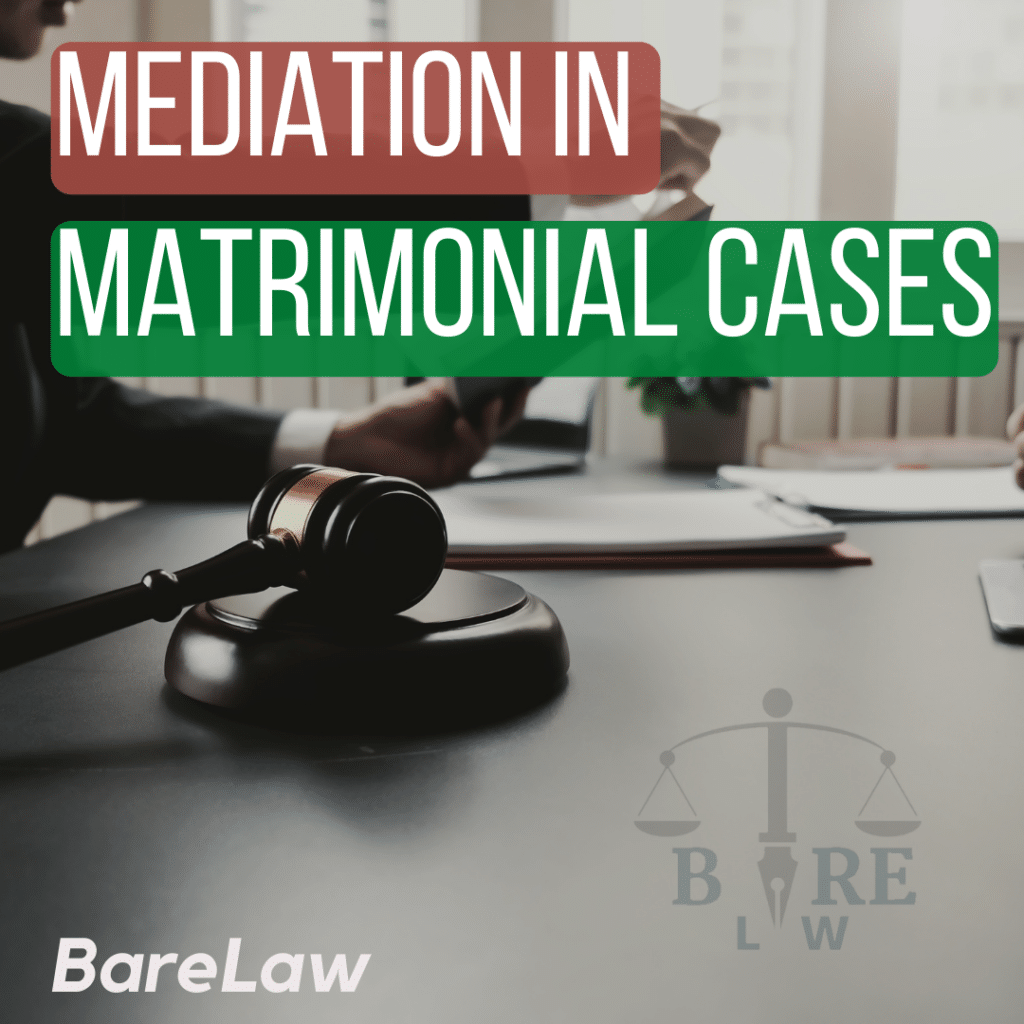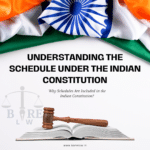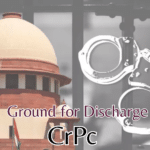
Authored By: Dev Gupta
Table of Contents
MEDIATION IN MATRIMONIAL CASES
The mid-20th Century saw a massive boom in the increase of divorce proceedings and all proceedings connected to it, such as child custody, visitation allowances, etc., in the United States. Around the same time, the world started getting a hold on the process of Alternative Dispute Resolution as it gained speed. Divorce proceedings can be some of the most mentally depressing and taxing proceedings that a lawyer/client can go through. A lot of negative emotions that often get piled up during troubled marriages are revealed, which, as it follows, causes a lot of negativity. This rise in divorce cases hit India with the onset of the 21st Century. It was never a steep or critical rise, but it gradually increased, and now it is at about 1.1% – which is one of the lowest in terms of global numbers, but in terms of India, it was lower previously.
MARRIAGE AND REASONS FOR SEPARATION:
Marriage is the union / coming together of 2 individuals for love, affection, care, and, often, starting a family. Marriage is the second-last and one of the most important stages of a relationship that a human explores. The first one is of being a child in the parent-child relationship, then having friends, having significant others, and then when it looks like all the stars align, the stage is of marriage with the significant other. Finally, one being a parent in the parent-child relationship. But all in all, marriage is a commitment. It is a job to be done every day. It is a mental activity of ensuring both parties are cordial – the wife and the husband.
Separation / Divorce proceedings are initiated for several reasons. False promises, missing love and affection, or just something as natural as outgrowing each other are some of them. These reasons can, in some rare scenarios, deteriorate into something darker. Physical Abuse, Mental Abuse, Verbally going off on each other are just the beginning. Such tendencies are even further inflated when they involve children because children, as a result, grow to become emotionally numb or just downright violent and underdeveloped (mentally) since they miss out on the warmth that their house was supposed to provide for them.
MEDIATION:
Mediation is a process where the parties mutually and amicably appoint a mediator who attempts in helping the parties settle but, this settlement is not binding on the parties and the parties can choose to take the matter further in court. The mediator attempts to bring out the willingness of the parties to mend their wants. The mediator is especially capable of carrying out negotiations through emphasizing communications. Mediation is a highly private and inclusive method of dispute resolution. It often is wound up much earlier than a regular court trial which results in expedited financial and mental relief for the parties. This makes mediation a perfect fit to be undertaken during matrimonial proceedings.
THE FAMILY COURTS ACT, 1984:
The Family Courts Act, 1984 deals with the establishment, powers and procedures as are to be vested in the Family Courts. Witnessing the rise of matrimonial proceedings, this court was established in order to offer speedy trials to the parties and have a structured procedural layout.
CHAPTER IV SECTION 9: Which reads as follows-
9. Duty of Family Court to make efforts for settlement.—
(1) In every suit or proceeding, the Family Court shall make an endeavor in the first instance, where it is possible to do so consistent with the nature and circumstances of the case, to assist and persuade the parties in arriving at a settlement in respect of the subject-matter of the suit or proceeding and for this purpose a Family Court may, subject to any rules made by the High Court, follow such procedure as it may deem fit.
(2) If, in any suit or proceeding, at any stage, it appears to the Family Court that there is a reasonable possibility of a settlement between the parties, the Family Court may adjourn the proceedings for such a period as it thinks fit to enable attempts to be made to effect such a settlement.
(3) The power conferred by sub-section (2) shall be in addition to, and not in derogation of, any other power of the Family Court to adjourn the proceedings.
It can be seen clearly from the above that the Act itself tries to promote the usage of settlement methods between the parties. And due to its nature, such settlement procedures often involve Mediation.
LOK-ADALAT:
The Legal Services Authorities Act, 1987 provided for the establishment of Lok Adalats. Lok – Adalat in its literal sense means the People’s Court. These Lok Adalats are to be held in EVERY court of the country in order to promote settlement and conciliation. It provides for the establishment of permanent Lok Adalats and Lok Adalats that the courts can institute at their discretion. Itt further encourages parties to a dispute, matrimonial or not, to explore the possibility of settling the matter since it guarantees speedy and cost effective disposal of the proceeding. Orders passed by the Lok Adalat are to be taken as that passed by a Court and is hence final and binding and all of the parties involved.
CASE DECISIONS:
In K. Srinivas Rao v. D.A. Deepa, (2013) 5 SCC 226[1]The Supreme Court further emphasized and urged the various Courts and Mediation centers that if matrimonial disputes can be resolved through mediation, it is the duty of the Family COurts to encourage it. Even if the Report submitted by the Counsellor is one of failure, the courts shall not conclude from attempts at promoting settlement dialogue between the parties.
CONCLUSION:
It has been, at different times and places, emphasized that matrimonial proceedings should be resolved by mediation as much as possible. The Court has upon its shoulders, the duty to act as the first mediator in these proceedings and it should carry out that duty with utmost good faith. The Court should take into account the kind of matter it is dealing with when pronouncing strict and absolute judgments depriving either party of their right to happiness, if that is to be the case.





